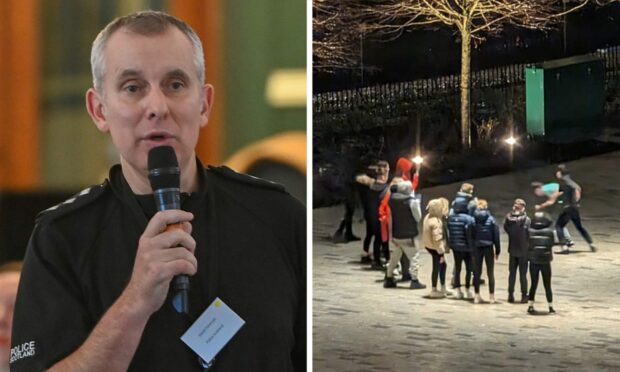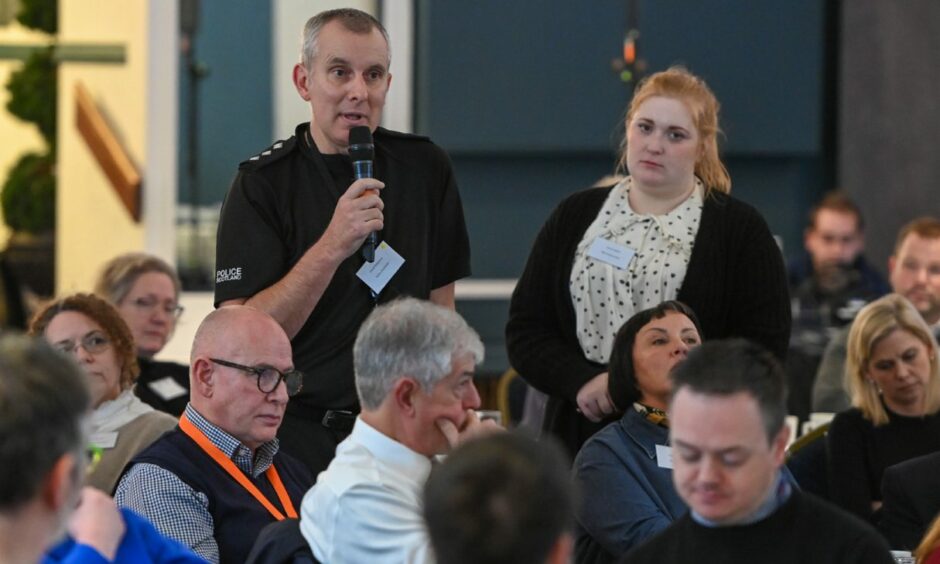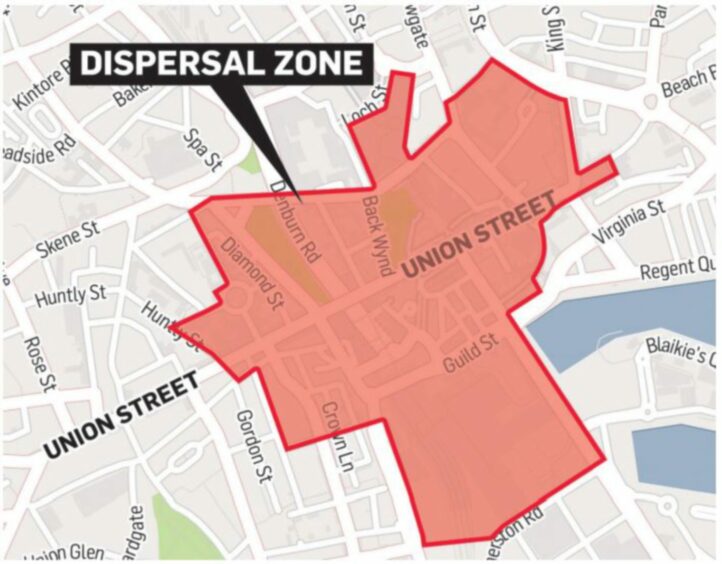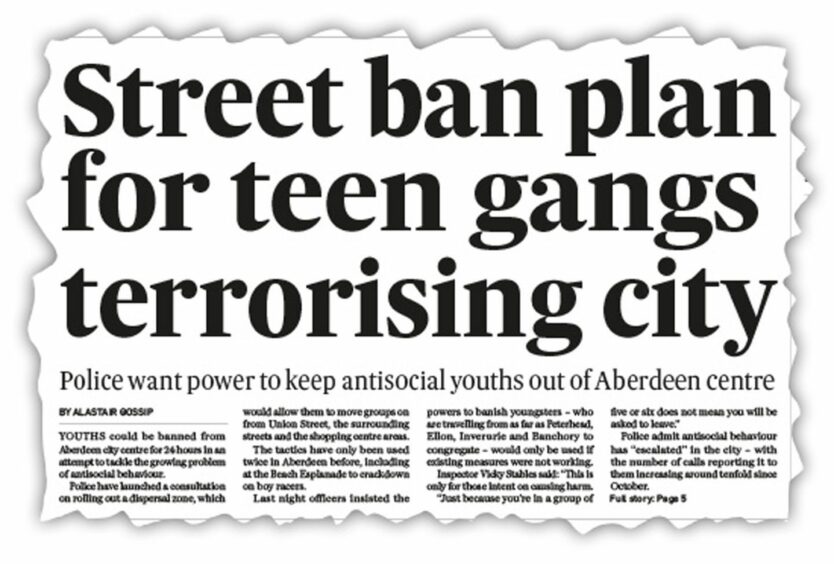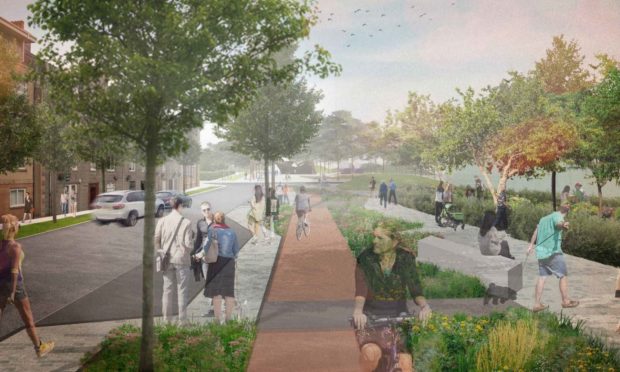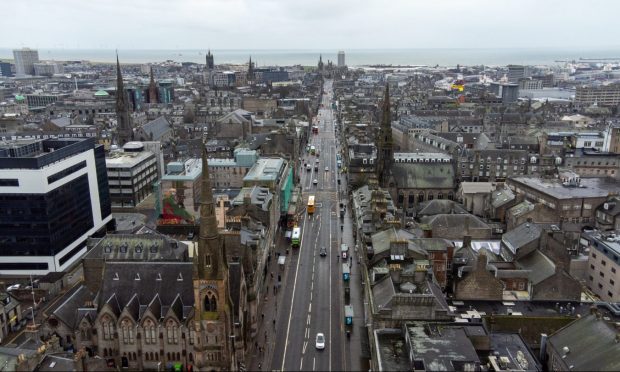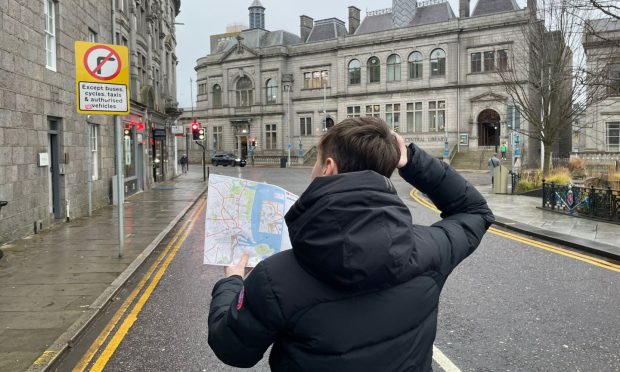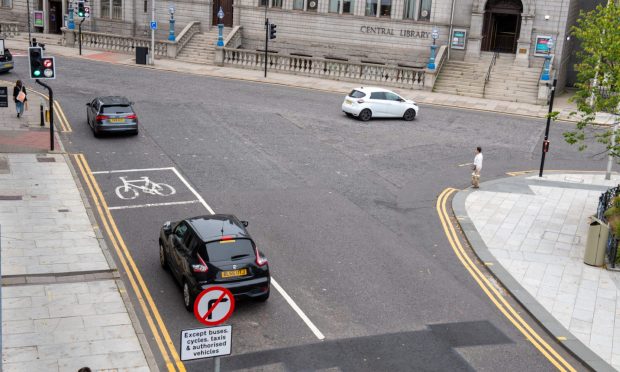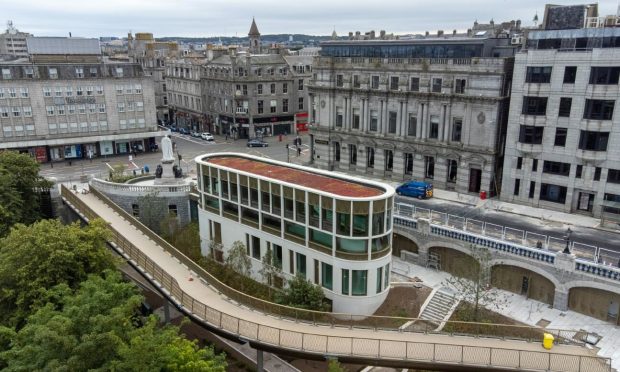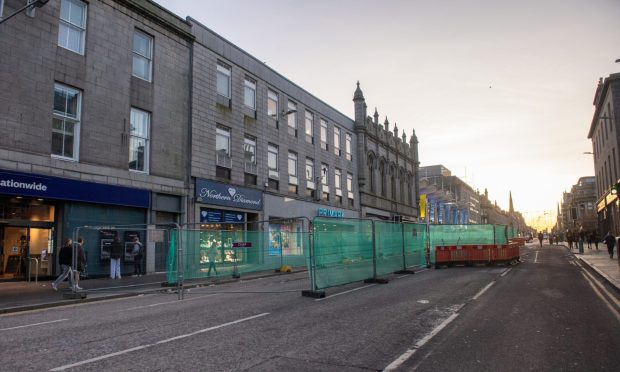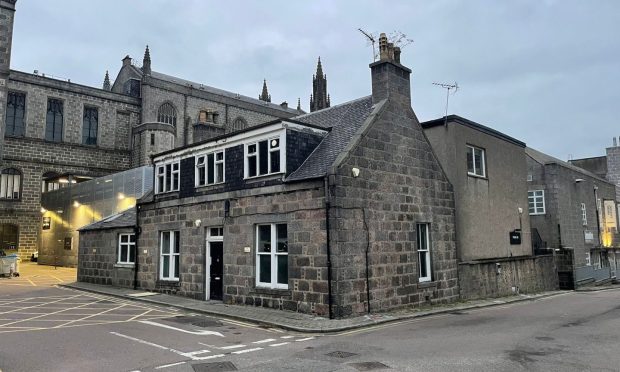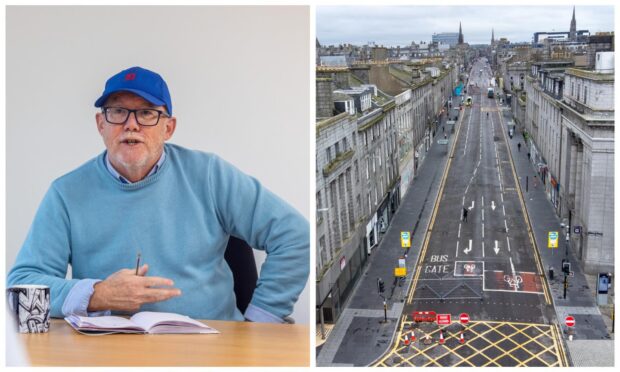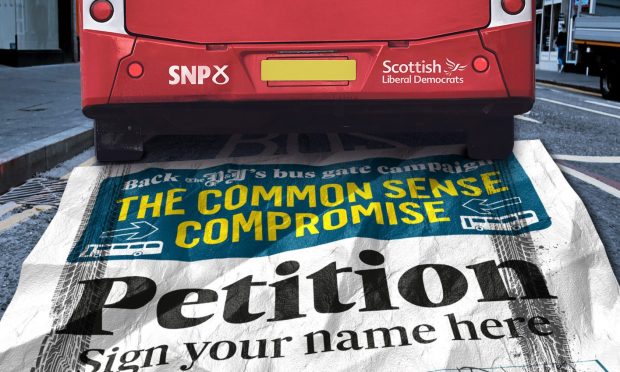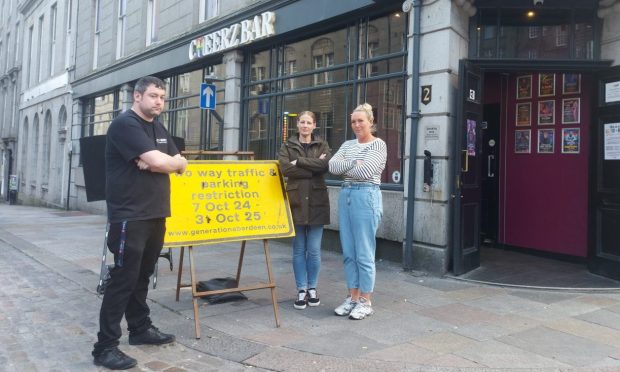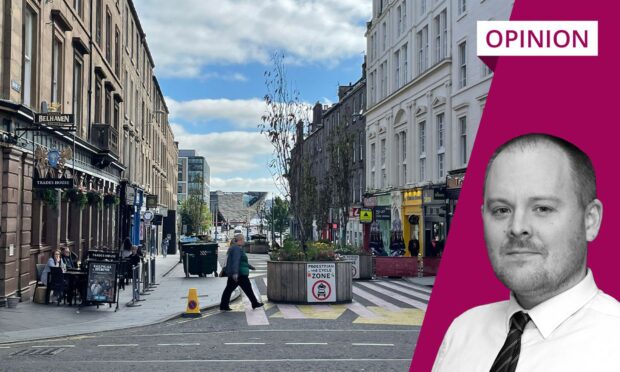Police considered banishing gangs of youths from Aberdeen city centre last summer – but fell short of meeting legal requirements to reintroduce the drastic measures.
Antisocial behaviour has soured the opinion of the central stretch of Union Street, which is at the heart of future multi-million-pound regeneration work.
Had they introduced the banning order, it would have been the second in the city centre in three years.
The Granite Mile stretch was closed off to all traffic during the coronavirus pandemic. Police chiefs say it then became “fertile” ground for rowdy youngsters.
As the world emerged from Covid, problem groups remained around the fast food restaurants in the middle.
Union Street has since reopened to buses and taxis in the hope of bringing people back to the city centre.
Antisocial behaviour is steering people clear of Union Street
Despite that, large numbers of youngsters still gather there after dark on the stretch between Market Street and Bridge Street.
In recent months, Aberdonians have told The P&J that they avoid the main thoroughfare at night.
“It does get a bit hairy,” one claimed as we took to Union Street for eight hours one November day.
At the end of last year, city centre police commander David Paterson fronted up to the antisocial behaviour problem.
At a summit on the future of Union Street, the chief inspector said the “sterile state” of the struggling Granite Mile made the “presence of anti-social behaviour more prominent than in a bustling environment”.
Our reporters have seen the unrest themselves.
Soon after his words, an editorial outing to Belmont Street was sidetracked by a gang of 30-40 teenagers.
They had set about a very intoxicated couple, chasing them up the street.
On this occasion, the quarrel ended without violence.
As we witnessed, many of the culprits are younger than 16 which left Ch Insp Paterson admitting his officers “couldn’t enforce our way out of this”.
Dispersal zone used to target key group of Aberdeen troublemakers in 2019
A solution police have turned to in recent years is the use of a dispersal order.
The powers made available through Scottish antisocial behaviour law allow officers to ask problem groups to leave the city centre for 24 hours.
Officers introduced the measures in 2019.
It followed a brutal assault on a north-east dad, which almost killed him.
But between May and August of that year, the dispersal legislation was used only 22 times in the city centre.
Officers had targeted a core group of troublemakers.
Just 16 people were banned from the area and told not to return within the day. And seven were charged for later being found back in the city centre too soon.
But now, police have revealed they thought about doing it again. It never came to be.
Union Street antisocial behaviour mainly ‘short of criminality’
Top brass is understood to have considered another dispersal zone as antisocial behaviour peaked last summer.
“On reviewing the volume and types of anti-social behaviour, there was not a strong enough evidence base to meet the statutory threshold for such a zone,” a spokeswoman told us.
In his response to the UTG antisocial behaviour, Ch Insp Paterson said the “vast majority” of city centre incidents are “lower level and fall short of criminality”.
A new high-visibility Safer City Unit has had a positive, preventative, effect since its launch last year, he said.
Fears violence will ‘put folk off coming’ into Aberdeen city centre
These latest scenes in Union Terrace Gardens once again have caused people to call for action.
Privately, councillors have aired frustrations about a lack of bobbies on the beat in the city centre.
Today we also report that CCTV planned for the newly-developed, multi-million-pound gardens is yet to be installed.
The council’s public protection convener, Miranda Radley, told The P&J of fears the UTG fighting could “put folk off coming into town”.
“I am sure police will look into this incident thoroughly,” she added.
“We all want our city centre to be a more vibrant and welcoming place. We will take steps towards delivering that but unfortunately this is a step in the wrong direction.”
